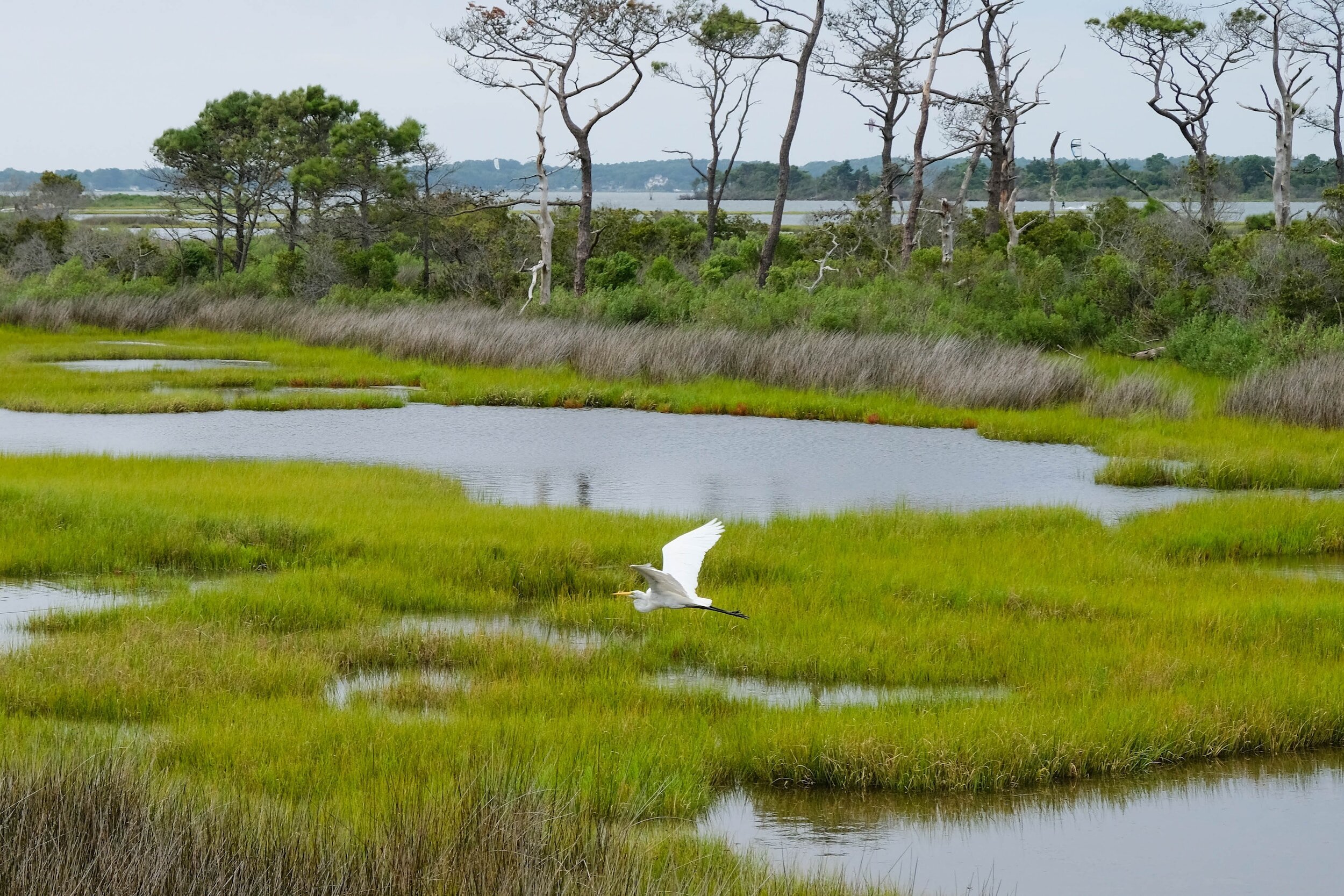
Federal Outreach
Wetlands Watch Testifies in Support of Coastal Barrier Resources System Expansion
September 27, 2023
Wetlands Watch was asked to testify before the Committee on Natural Resources’ Water, Wildlife, and Fisheries Subcommittee in the US House of Representatives on legislation [HR. 4590 by Kiggins (R-VA)] to expand the Coastal Barrier Resources System. Watch a recording of the testimony here.
Skip Stiles, former Executive Director of Wetlands Watch, offered our strong support for changes to the Coastal Barrier Resources Act (CBRA). HR. 5490 would amend CBRA by adding 96,435 acres to Virginia’s current 163,589 acres of aquatic habitat, wetlands, and uplands (beaches, bluffs, barrier islands, etc.), and we strongly support that addition. Wetlands Watch asked that a Coastal Hazards Pilot Project, as is being proposed by the Senate, be added to the bill, to explore how CBRA lands could adapt to sea level rise.
The Coastal Barrier Resources Act (CBRA) is a bi-partisan statute that protects undeveloped coastal habitat by rendering it ineligible for certain kinds of federal support like flood insurance and road funding. By deterring development in this way, CBRA protects coastal development, promotes public safety, and saves the federal government billions. To date, it is estimated that the Coastal Barrier Resources System, encompassing ~3.5 million acres along the Atlantic, Gulf of Mexico, Great Lakes, U.S. Virgin Islands, and Puerto Rico coasts, has saved $9.5 billion in avoided federal disaster payments.
Senators Carper (D-DE) and Graham (R-SC) in the “Coastal Communities Act” have proposed the creation of a Coastal Hazards Pilot Project to explore how to protect these lands as the seas rise. We believe that this will strengthen the House bill considerably. As explained in a previous post, wetlands in the mid-Atlantic are experiencing rates of relative sea level rise beyond their ability to accrete vertically. The only way for them to survive is to “migrate” landward into the new intertidal zone. However, if development has taken place “behind” the wetlands, their migration will be blocked and they will drown in place.
Successful wetlands migration v. blocked by development
In Virginia, we amended our Tidal Wetlands Act and our Chesapeake Bay Protection Act to include sea level rise in regulatory decisions. These regulatory changes are designed to keep more of the upper shoreline free from development, and allow the wetlands to move landward as the seas rise. It will also keep people from developing in increasingly hazardous locations on the tidal coast.
The Senate version of the CBRA amendments -- the "Strengthening Coastal Communities Act," which proposes the Coastal Hazards Pilot Project -- follows the intent of our Virginia statutory changes. Expanding CBRA eligibility to include uplands would provide badly needed migration corridors for the intertidal habitat, and save them from drowning.
Wetlands Watch strongly urged the subcommittee to add the Coastal Hazards Pilot Project in its testimony.
Public Comments (Federal)
2023, 7 November. Public Comment Regarding H.R 5490, the Bolstering Ecosystems Against Coastal Harm Act (BEACH Act.)
2024, 8 April. Public Comment Regarding Army Corps of Engineers Proposed Regulation: COE–2023–0005 “Agency Specific Procedures to Implement the Principles, Requirements, and Guidelines for Federal Investments in Water Resources”
2024, 15 April. Public Comment Regarding Army Corps of Engineers Proposed Regulation: COE–2023–0005 “Agency Specific Procedures to Implement the Principles, Requirements, and Guidelines for Federal Investments in Water Resources” [Ian: are any of these duplicates?]
2024, 19 April. Public Comment Regarding U.S. Army Corps of Engineers’ Agency Specific Procedures to Implement the Principles, Requirements, and Guidelines for Federal Investments in Water Resources proposed rule contained in the Feb 15, 2024 Federal Register Docket Number, COE-2023-0005
2024, 24 April. Public Comment Regarding New Federal Interagency Sea Level Rise Website [needs to be altered from draft]
2024, 6 May. Public Comment Regarding Comments on National Wildlife Refuge Biological Integrity, Diversity, and Environmental Health Proposed Regulations and Policy Updates.
